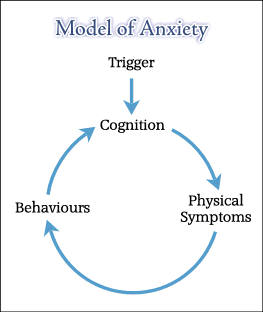
Tel: 0800 078 7712

Tel: 0800 078 7712
Home | Common Problems | Therapies | Therapy Format | Common Myths | Consultancy | Contact | Links
Expert; Individual; Formulation driven CBT
Copyright © 2022, A.S.T. Consultancy.
A phobia (from the Greek: phobos) is an irrational, intense, persistent fear of certain situations, activities, objects or persons. The main symptoms of this disorder are an intense, irrational desire to avoid the feared trigger(s) and an excessive anxiety response when confronted with the trigger(s).
Phobias may be divided into two groups, Specific and Complex. The former being a phobia to a “Specific” trigger, such as a fear of animals, needles, being ill, vomiting or dentists and the latter being as above but involving multiple triggers for the anxiety response. An example being Agoraphobia (fear of the market place); which may include a fear of entering shops, crowds, or public places, of travelling in trains, buses, or planes and including an increased anxiety response when unable to immediately escape to a place of safety. Both specific and complex phobias may be complicated by panic attacks, which are an extreme anxiety response to a situational trigger, not to be confused with panic disorder which is often described as “coming out of the blue”.
If the fear is beyond one's control, or is significantly interfering with one’s activities of daily life an anxiety disorder may be a diagnosed.
Common Phobias include: (Click here for full list of phobias)
Formulation
Cognitive & Behavioural Psychotherapists collaborate with the patient to assess and identify all maintaining factors; including thoughts, behaviours, emotions and physical symptoms associated with the problem and develop a working formulation which will be utilised to guide the course of therapy.
Treatment
The treatment of choice here is Graded Exposure, in which the behavioural psychotherapist will collaborate with the patient to develop and implement a hierarchy for exposure, identifying all triggers for the phobia and introducing these in a manner in which will provoke the anxiety response to a manageable level. Encouragement is given to increase helpful and decrease unhelpful behaviours.
Final Stages of the therapeutic interventions are aimed at relapse prevention strategies.

Vicious circle: Model of Anxiety